Kia Ceed Sportswagon vs Renault Symbioz - Differences and prices compared
Compare performance (140 HP vs 158 HP), boot space and price (24300 £ vs 24400 £ ) at a glance. Find out which car is the better choice for you – Kia Ceed Sportswagon or Renault Symbioz?
Costs and Efficiency:
Price and efficiency are often the first things buyers look at. Here it becomes clear which model has the long-term edge – whether at the pump, the plug, or in purchase price.
Kia Ceed Sportswagon has a hardly perceptible advantage in terms of price – it starts at 24300 £ , while the Renault Symbioz costs 24400 £ . That’s a price difference of around 94 £.
Fuel consumption also shows a difference: Renault Symbioz manages with 4.50 L and is therefore noticeable more efficient than the Kia Ceed Sportswagon with 6 L. The difference is about 1.50 L per 100 km.
Engine and Performance:
Under the bonnet, it becomes clear which model is tuned for sportiness and which one takes the lead when you hit the accelerator.
When it comes to engine power, the Renault Symbioz has a slightly edge – offering 158 HP compared to 140 HP. That’s roughly 18 HP more horsepower.
In acceleration from 0 to 100 km/h, the Renault Symbioz is hardly perceptible quicker – completing the sprint in 9.10 s, while the Kia Ceed Sportswagon takes 9.70 s. That’s about 0.60 s faster.
In terms of top speed, the Kia Ceed Sportswagon performs hardly perceptible better – reaching 197 km/h, while the Renault Symbioz tops out at 180 km/h. The difference is around 17 km/h.
There’s also a difference in torque: Renault Symbioz pulls hardly perceptible stronger with 265 Nm compared to 253 Nm. That’s about 12 Nm difference.
Space and Everyday Use:
Whether family car or daily driver – which one offers more room, flexibility and comfort?
Both vehicles offer seating for 5 people.
In curb weight, Kia Ceed Sportswagon is hardly perceptible lighter – 1335 kg compared to 1359 kg. The difference is around 24 kg.
In terms of boot space, the Kia Ceed Sportswagon offers hardly perceptible more room – 625 L compared to 576 L. That’s a difference of about 49 L.
In maximum load capacity, the Renault Symbioz performs slight better – up to 1682 L, which is about 137 L more than the Kia Ceed Sportswagon.
When it comes to payload, Kia Ceed Sportswagon minimal takes the win – 485 kg compared to 459 kg. That’s a difference of about 26 kg.
Who wins the race in the data check?
The Renault Symbioz is clearly superior overall in the objective data comparison.
This result only shows which model scores more points on paper – not which of the two cars feels right for you.
Costs and Consumption
View detailed analysis
Engine and Performance
View detailed analysis
Dimensions and Body
View detailed analysis
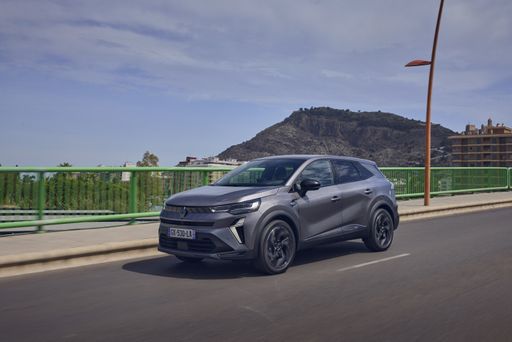
Renault Symbioz
Kia Ceed Sportswagon
The Kia Ceed Sportswagon is a sensible and surprisingly stylish family wagon that turns daily chores into a bit less of a grind. Practical, comfortable and packed with thoughtful touches where they matter, it’s a smart choice for buyers who want usefulness without sacrificing personality.
details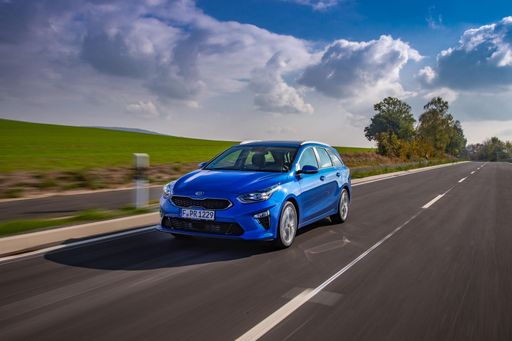
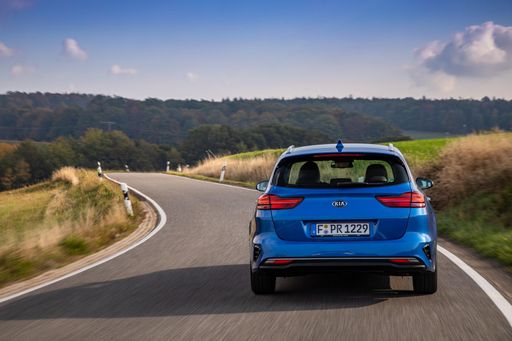
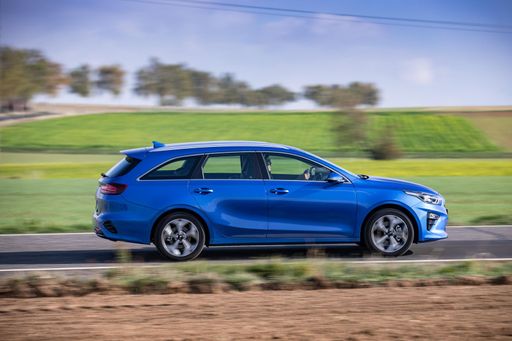
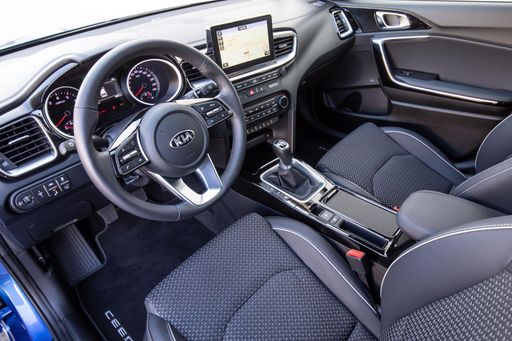
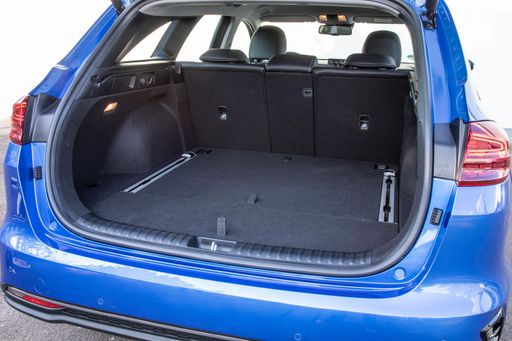
Renault Symbioz
The Renault Symbioz feels less like a traditional car and more like a rolling living room that's been told it's allowed to drive — its flowing lines and minimalist cabin are pure concept-car theatre that teases the future of everyday transport. For buyers with an eye for design and a taste for tech-forward ideas, the Symbioz is an alluring vision of what Renault could offer tomorrow, even if it's not yet a model you can park in your driveway.
details
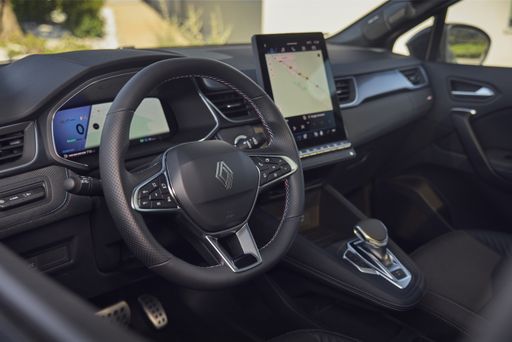
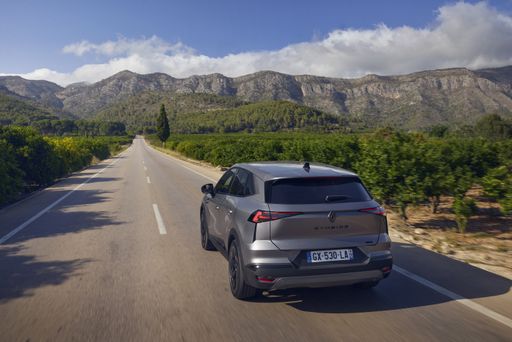
Costs and Consumption |
|
|---|---|
|
Price
24300 - 29100 £
|
Price
24400 - 30700 £
|
|
Consumption L/100km
6 - 6.4 L
|
Consumption L/100km
4.5 - 6 L
|
|
Consumption kWh/100km
-
|
Consumption kWh/100km
-
|
|
Electric Range
-
|
Electric Range
-
|
|
Battery Capacity
-
|
Battery Capacity
-
|
|
co2
137 - 146 g/km
|
co2
102 - 136 g/km
|
|
Fuel tank capacity
50 L
|
Fuel tank capacity
48 L
|
Dimensions and Body |
|
|---|---|
|
Body Type
Estate
|
Body Type
SUV
|
|
Seats
5
|
Seats
5
|
|
Doors
5
|
Doors
5
|
|
Curb weight
1335 - 1437 kg
|
Curb weight
1359 - 1465 kg
|
|
Trunk capacity
512 - 625 L
|
Trunk capacity
492 - 576 L
|
|
Length
4605 mm
|
Length
4413 mm
|
|
Width
1800 mm
|
Width
1797 mm
|
|
Height
1422 mm
|
Height
1575 mm
|
|
Max trunk capacity
1545 L
|
Max trunk capacity
1682 L
|
|
Payload
455 - 485 kg
|
Payload
455 - 459 kg
|
Engine and Performance |
|
|---|---|
|
Engine Type
Petrol, Petrol MHEV
|
Engine Type
Full Hybrid, Petrol MHEV
|
|
Transmission
Automatic, Manuel
|
Transmission
Automatic, Manuel
|
|
Transmission Detail
Dual-Clutch Automatic, Manual Gearbox
|
Transmission Detail
Automatic Gearbox, Manual Gearbox, Dual-Clutch Automatic
|
|
Drive Type
Front-Wheel Drive
|
Drive Type
Front-Wheel Drive
|
|
Power HP
100 - 140 HP
|
Power HP
140 - 158 HP
|
|
Acceleration 0-100km/h
9.7 - 13.5 s
|
Acceleration 0-100km/h
9.1 - 11 s
|
|
Max Speed
197 km/h
|
Max Speed
180 km/h
|
|
Torque
172 - 253 Nm
|
Torque
250 - 265 Nm
|
|
Number of Cylinders
3 - 4
|
Number of Cylinders
4
|
|
Power kW
74 - 103 kW
|
Power kW
103 - 116 kW
|
|
Engine capacity
998 - 1482 cm3
|
Engine capacity
1332 - 1789 cm3
|
General |
|
|---|---|
|
Model Year
2024
|
Model Year
2025
|
|
CO2 Efficiency Class
E
|
CO2 Efficiency Class
C, D, E
|
|
Brand
Kia
|
Brand
Renault
|
Is the Kia Ceed Sportswagon offered with different drivetrains?
The Kia Ceed Sportswagon is available as Front-Wheel Drive.




